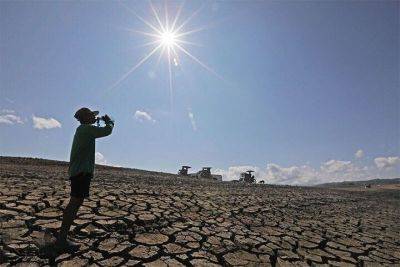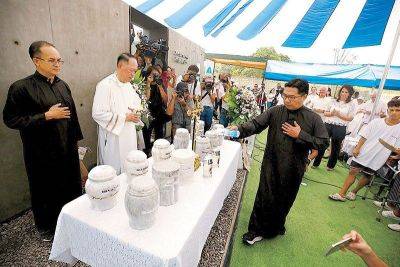Agriculturists launch improved farming system adapting to climate change
By Amabelle Franchesca Boncato
“We needed to make adjustments, we needed to make solutions,” – Marvin Navarrete, a farmer.
After all the environmental catastrophes experienced in the Philippines due to climate change, the agricultural industry is obliged to make modifications to their farming methods to adapt to these adverse effects such as extreme drought, typhoons, and floods.
According to the record of the Philippine Statistics Office (PSA) the total output of the agricultural sector declined as rice and corn production went down by 3.6%and 3.4%, respectively. As a result, it is seen that aside from poverty, climate change impacts on crop production is one of the major causes of food insecurity.
Based on the reports of the Department of Agriculture’s Disaster Risk Reduction and Management Operations Center, the damage of consecutive typhoons, Quinta, Rolly and Ulysses, totaled up to Php10.5 billion wherein 275,000 hectares of agricultural lands were destroyed and 150,000 farmers were affected.
Struggles of farmers over climate change
In a small land in Sampaloc IV, Dasmariñas City, Cavite, Marvin Navarrete, a farmer for 15 years, shared his improved farming system intended to uplift their livelihood wherein he explained that shifting to less vulnerable crops is effective as an adaptation method to climate change impacts.
According to him, the farmers struggle due to unpredictable weather patterns and long-term drought which make it harder for them to yield better products. He added that there’s a newly discovered pest called ‘armyworms’ which are resistant to insecticides and attack several types of crops.
“These past few years, farming is way harder than before. Drought triggers pest attacks on our crops and greatly affects farmers who are dependent on rainfall. However, if there’s too much water on our rice fields, it’ll be more prone to snails,” said Navarrete.
Assistance from city agriculturist
As a response, Jennifer S. Ibayan, Agriculturist II of the Agricultural Office in Dasmariñas City, Cavite, said that they provide free assistance services to aid farmers affected by the impacts of climate change. She highlighted that by integrating







